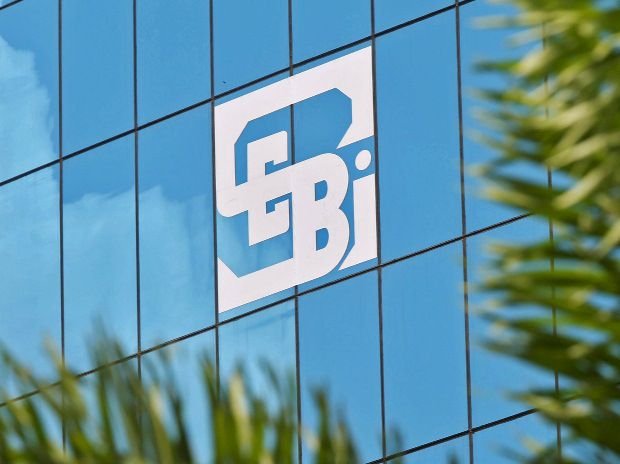In a decisive move on Wednesday, the Securities and Exchange Board of India (SEBI) imposed a fine of ₹5.2 crore on stockbroker OPG Securities and its directors. The regulator held them accountable for gaining repeated and unfair access to the secondary servers of the National Stock Exchange (NSE), violating fair trading norms under the controversial co-location issue. The watchdog directed the parties involved to settle the penalty within 45 days.
This penalty follows a prolonged regulatory investigation that unearthed systemic misuse of NSE’s co-location facility. The primary allegation involved OPG Securities manipulating server access to gain faster data and execute trades ahead of competitors—an unfair advantage in the high-frequency trading (HFT) environment.
Breakdown of Penalties
SEBI’s 25-page order clearly outlined the penalties. The regulator levied a joint fine of ₹5 crore on OPG Securities and its key directors—Sanjay Gupta, Sangeeta Gupta, and Om Prakash Gupta—for their direct involvement in unfair trade practices. In addition, SEBI imposed an individual fine of ₹10 lakh on OPG Securities for violating the regulator’s Code of Conduct.
SEBI also fined Sanjay Gupta, the key figure behind the brokerage’s trading strategy, another ₹10 lakh for obstructing and hampering the regulatory investigation.
Unfair Advantage Through Secondary POP Server
SEBI adjudicating officer Asha Shetty pointed out that OPG Securities repeatedly connected to the secondary Point of Presence (POP) server of NSE instead of the primary one. This strategy gave the broker faster access to market data and order execution. In an HFT environment, even milliseconds of faster access can deliver disproportionate trading advantages.
“I note that SAT has affirmed in its order that Noticee 1 (OPG Securities) gained an unfair advantage by repeatedly accessing the Secondary POP Server, thereby making unlawful gain,” stated Shetty. “Regardless of the quantum of such unlawful gain, it is evident that the manner in which Noticee 1 connected to the secondary server constituted an unfair practice, which was recurrent in nature. This amounts to a serious violation,” she added.
Directors Held Liable
SEBI did not limit the accountability to the brokerage firm. It held directors Sanjay, Sangeeta, and Om Prakash Gupta vicariously liable. Since they held leadership roles during the period of violation, SEBI found them responsible for the actions of the company under their direction. The regulator asserted that the directors failed to uphold the required standards of integrity, diligence, and due care in business operations.
Shetty emphasized that OPG Securities, as a registered market intermediary, carried the responsibility to comply with SEBI’s Code of Conduct and uphold fair trading principles. The company, under its leadership, failed on both counts.
Response and Defense by OPG Securities
In response, OPG Securities and its directors contested the fines. They asked SEBI to put the penalty process on hold until the Supreme Court and the Securities Appellate Tribunal (SAT) concluded pending appeals. The firm argued that previous SEBI adjudication officers had ruled in favor of secondary server access, indicating that the act wasn’t prohibited.
They also questioned SEBI’s penalty computation and demanded a chance to challenge the methodology used. However, SEBI rejected both arguments.
Asha Shetty clarified that the current adjudication process only focused on deciding the penalty’s quantum—not re-evaluating whether a violation occurred. SEBI already established the violation in previous rulings, and the SAT had affirmed the misconduct. Therefore, the regulator saw no need to delay the penalty decision.
Reopened Penalty Proceedings
This case has a history. SEBI had initially imposed a ₹5.2 crore fine on OPG Securities and its directors in February 2021. However, after the accused filed an appeal, the SAT in July 2023 asked SEBI to reassess the quantum of the penalty. The tribunal didn’t overturn the findings of guilt but merely asked the regulator to reconsider the fine in light of proportionality and fairness.
SEBI reopened the case but stood firm in its stance after reconsideration. The regulator noted that the misconduct was recurrent, deliberate, and systemically damaging to market integrity. SEBI found no mitigating circumstances to lower the penalty. Instead, it reaffirmed the same amount—₹5.2 crore.
Significance of the Co-Location Controversy
This case forms part of a larger controversy surrounding NSE’s co-location facility. Under this model, brokers placed their trading systems in proximity to the exchange’s servers, which allowed faster access to market data feeds. However, certain brokers, including OPG Securities, manipulated the server selection process to ensure consistent and faster access than competitors. The practice undermined the fairness of Indian capital markets.
By punishing OPG Securities, SEBI aims to send a clear message that misuse of technological infrastructure, even in a grey regulatory area, will invite serious consequences. The adjudication highlights the fine line between competitive advantage and unfair manipulation in high-frequency trading.
SEBI Reinforces Regulatory Vigilance
SEBI’s handling of the case demonstrates the regulator’s growing scrutiny of technological abuse in the market. While co-location itself is not illegal, SEBI insists that every market participant must operate on a level playing field. Any attempt to game the system—especially by repeatedly choosing faster or less-crowded servers—falls under the definition of unfair trade practices.
The order also reinforces that SEBI will hold not just companies but also individual directors accountable when compliance fails. The regulator emphasized that senior leadership cannot plead ignorance when their companies breach market norms.
Conclusion
With this order, SEBI draws a hard line on server manipulation in India’s capital markets. By imposing a hefty ₹5.2 crore penalty and naming both the company and its top management, SEBI reinforces that it won’t tolerate systematic abuse of trading infrastructure. The co-location controversy may continue in higher courts, but the regulator has acted decisively within its jurisdiction to uphold market integrity.
This case underscores the rising importance of ethical technology use in trading. As more brokers adopt algorithmic and high-frequency trading models, regulators worldwide must remain vigilant. SEBI’s latest action shows it intends to lead from the front in ensuring transparency and fairness in India’s capital markets.




